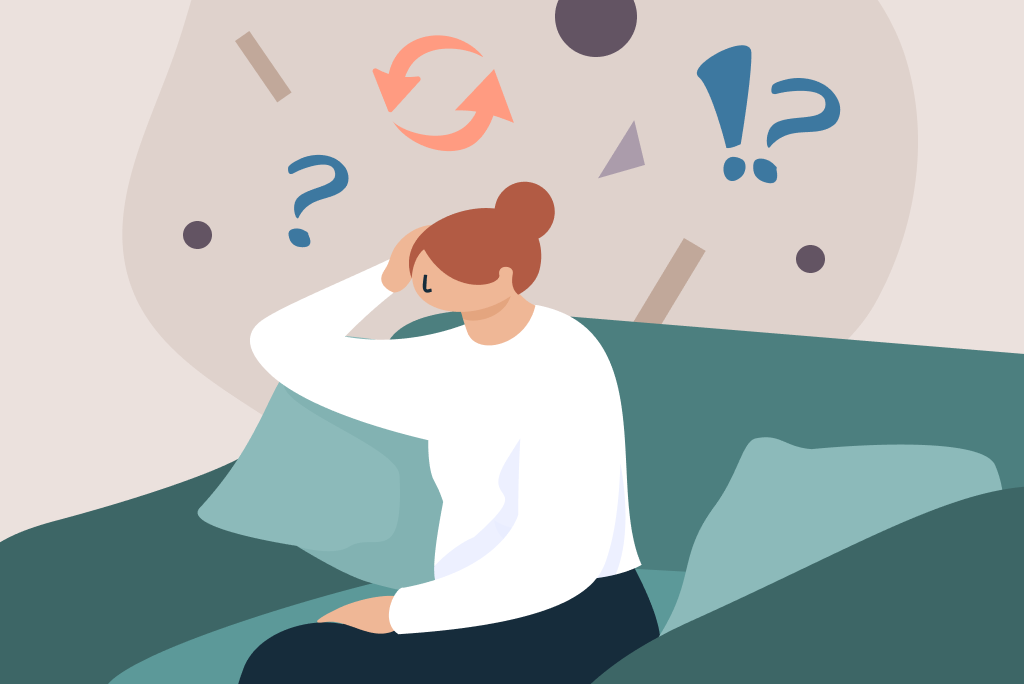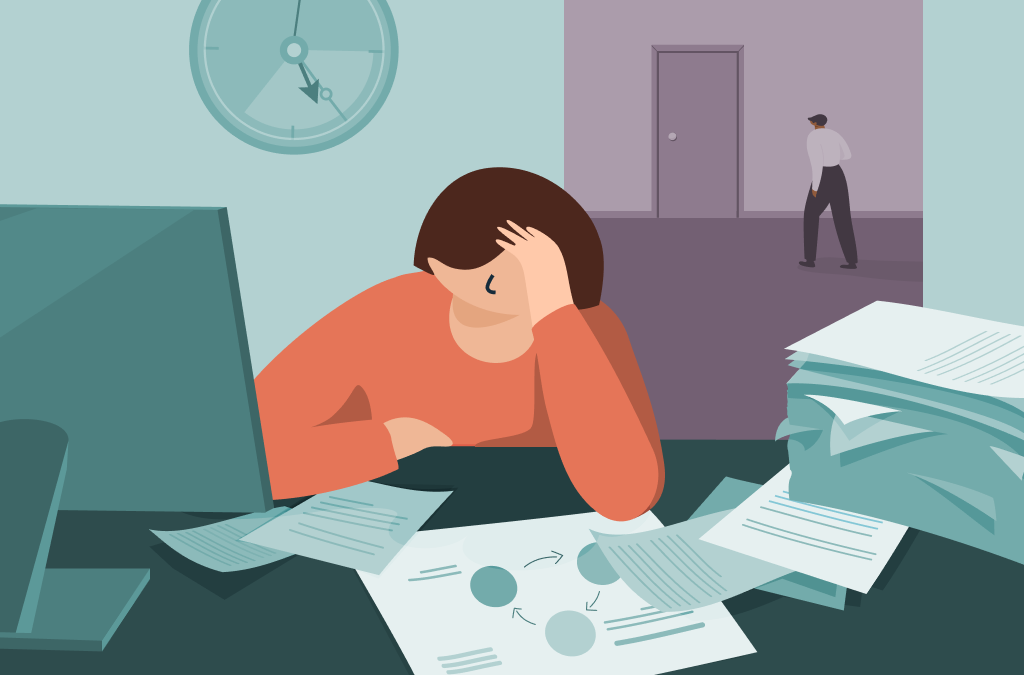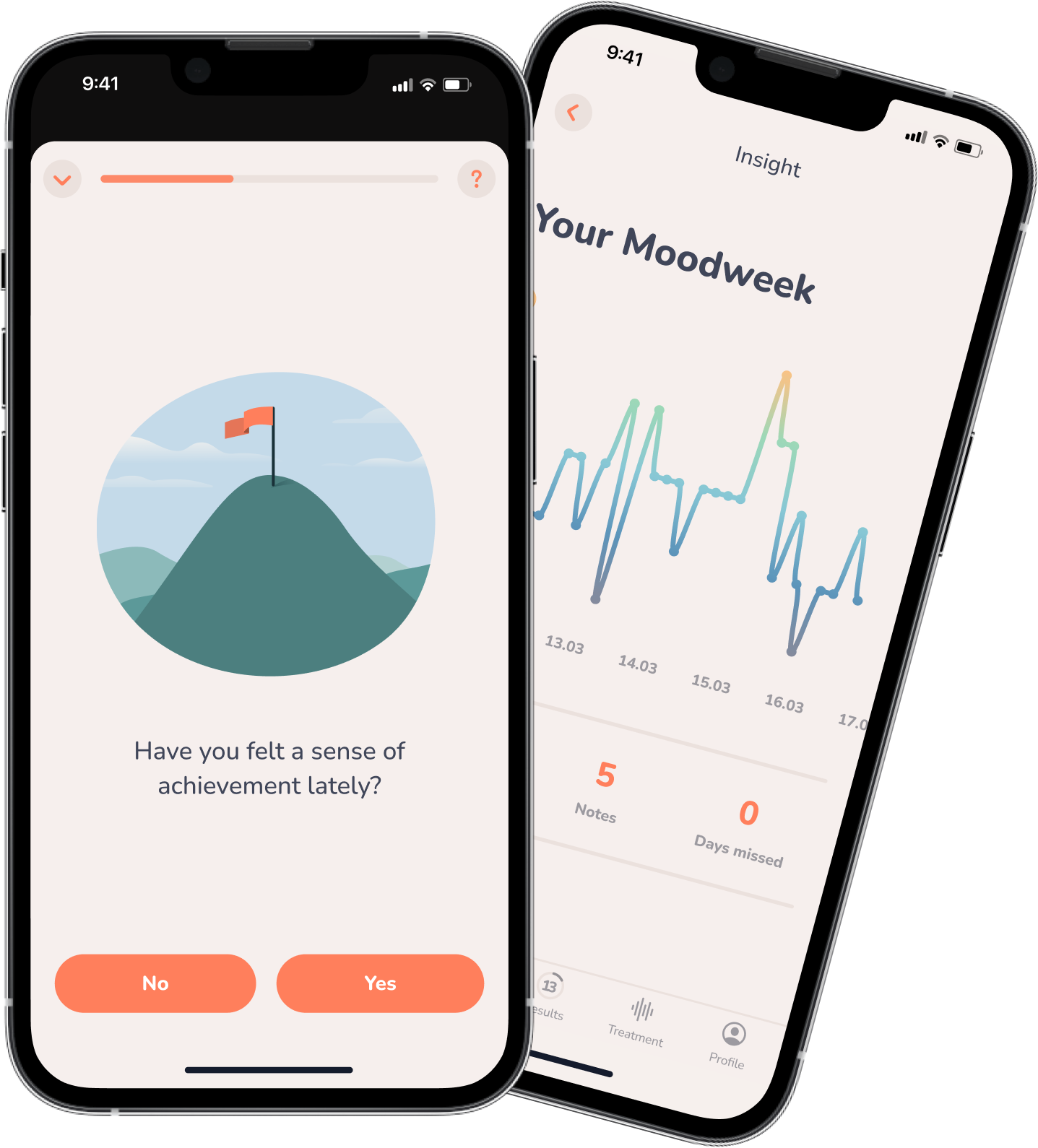Insight
Common Concerns to Starting Therapy, Debunked
Psychotherapy—yes, no, maybe . . .? People hesitate to start therapy for a variety of reasons, not the least of which is insecurity and fear. This article takes a look at some of the common thoughts people have that delay or push off therapy indefinitely.

1. “Am I actually feeling bad enough?”
Everyone feels sad at one time or another. Doesn’t everyone have some kind of anxiety? Other people often have much bigger problems than mine and they seem to deal with them fine—I should be able to, too. If I were to go to therapy, I might be taking away an opportunity from someone else who needs it worse than I do.
These are common thoughts for those hesitating to start psychotherapy, and especially among those who’ve been told from a young age to “buck up” or whose feelings or thoughts have been routinely dismissed by others. Such thoughts are not helpful because therapy has been shown to be quite effective for anyone struggling emotionally. Though everyone goes through a hard time or has periods of difficult emotions from time to time, it’s a good idea to seek professional support when quality of life is significantly impacted. And comparing oneself to how others handle difficulty is neither advisable nor helpful. Genetics, personality, and life experiences all come into play with how someone reacts to stress. So what may be okay for you may not be so for someone else and vice versa. And just because someone appears to be handling a difficulty with ease doesn’t necessarily mean they really are. So instead of asking, “Is this normal?” or “How am I doing compared to others?” ask yourself, “Am I struggling?” or “Is my quality of life being affected?”
If you’re concerned that you may not even really need therapy, the MindDoc app can be a good first step. Answering daily questions and logging mood and life circumstances can help track what’s going on with you. And when you do this consistently, the app will provide you with a recommendation about seeking treatment from a mental health practitioner. Any time, though, that you’re struggling with your mental health, you have the right to seek help! And the sooner, the better. When a mental illness is recognized and treated early, the prognosis tends to be better. If you’re worried about taking a valuable therapy slot away from someone else, that’s really not a decision you have to, nor even should, make. Rather, the therapist can decide who they will and will not have the time and resources to treat based on their own criteria.
2. “I don’t know if I can afford therapy.”
Whether psychotherapy is covered by your insurance or is an out-of-pocket cost is largely determined by your personal circumstances. If you are concerned about how you’ll cover the costs of therapy, keep in mind that many practitioners offer a sliding scale or will work with you to help make therapy affordable to you.
Other options may include therapy through community mental health centers, free support groups, an Employee Assistance Program (EAP) benefit through your employer, or government-funded mental health programs or subsidies.
You also might want to take a closer look at your financial situation to see if you could make some adjustments in order to make paying for therapy an option. Perhaps there are areas where you could cut out other expenses to make room in your budget for the costs of therapy.
If you’re in a situation where therapy truly is unaffordable, self-help resources such as through the MindDoc app may provide some support.
3. “How can I fit therapy into my schedule?”
With all you have on your plate, you may be wondering how you’d be able to fit therapy into your schedule? Psychotherapy is an investment in time but how much exactly? Typically, a therapist will suggest a weekly session that lasts 50 minutes. Or, for psychoanalysis, this may be two or three 50-minute sessions per week. Once you factor in travel time, any “homework” your practitioner asks you to do (such as, say, journaling or certain exercises, etc.), and/or reflections on what’s happened in your sessions, psychotherapy can take a few hours of your time per week. While this can be challenging if your schedule is tight, prioritizing treatment for your own mental health is usually a pretty wise investment. Consider, too, that untreated mental illness can end up taking up even more time than therapy would. Hours spent worrying, ruminating, and stressing about something, for example, can use up mental space and impact quality of life.
4. “Others might judge me if they find out I’m going to therapy.”
Just as anyone can become physically ill, anyone is at risk for developing a mental illness. About one in two people, in fact, will be affected by a mental illness at some point in their lives, and this estimate may actually be much lower than the reality since many mental illnesses go untreated and unreported.
Even with so many impacted by mental illness, stigmas around mental health do still exist, at least in a number of places or among certain populations. But remember that seeking professional support when you’re experiencing mental health issues shows that you’re taking good care of yourself and is, as such, a sign of strength. Talking openly about your experiences with others can also help encourage others to seek their own treatment when they need it.
Your well-being is, of course, always the top priority. You alone decide who you want to tell about your therapy, and when and in how much detail. You don’t owe this information to anyone.
To help you think about whether to talk about your decision to start therapy and with who, see this article in MindDoc’s magazine.
5. “I’m nervous to talk to someone I don’t know about what’s bothering me.”
Talking to a complete stranger about your most intimate feelings and thoughts? Totally understandable if this idea makes you nervous, especially if you’ve always just tried figuring out your mental health on your own. Opening up and sharing with someone can seem like an impossible hurdle.
Know that it is completely normal and okay to be nervous both when you start therapy and perhaps even throughout it. And if you can’t find any words at first or don’t want to broach certain topics right away, that’s okay, too. There is no right or wrong. Psychotherapists know how challenging the first sessions can be for patients. A good therapist will help you get started and meet you where you are. You alone set the pace and are allowed to take the time you need to gain trust and courage.
6. “What if I end up feeling worse than I do now?”
For many people, therapy is associated not only with hope for improvement but also with fear of getting worse. Talking about stressful issues in therapy often also brings up feelings of anxiety, sadness, shame, or anger, which can feel pretty threatening.
There may actually be a short-term increase in uncomfortable feelings and discomfort during therapy. This is usually the case, in fact, especially at the beginning when you’re dealing more intensely with topics you may have deliberately avoided ‘til now.
Conflicts with your family, partner, or friends can also arise as you learn to better stand up for yourself and relationships are forced to adapt. In the short term, this may make you feel worse. In the long term, however, you can gain new skills through the processes initiated in therapy, which can help you feel better and improve your quality of life. And even if the road to this goal is rocky for a time, you don’t have to walk it alone. Your therapist will make this journey with you and can help you deal with feeling temporarily worse.
7. “The therapist will think I’m crazy.”
Often thoughts, feelings, and behaviors that people experience in the context of mental illness are associated with shame and fear of being negatively judged. Many worry that what they’re experiencing will somehow make them “weird.” And the fear of being judged or even rejected is sometimes present in therapy as well.
But regardless of what you experience, you’re not weird, you’re human. Psychotherapists know about the wide range of human experience and behavior. And, there’s a very high likelihood that they’ve heard similar stories to yours from their other patients.
Therapists are not here to judge or condemn you; they’re here to understand you and work with you to get better. For therapy to be successful, there must be a trusting relationship between therapist and patient. As such, your therapist has been trained to be a non-judgmental guide in helping you find your way.
If you do feel uncomfortable during therapy sessions—perhaps you sense that you’re not understood or are being judged, speak up—even if it’s difficult. A good therapist will be open to criticism and if after speaking to them the situation doesn’t change, this is likely a sign that you should switch practitioners.
8. “In therapy I have to do things I don’t want to do.”
Psychotherapy is likely to involve experiencing some unpleasant feelings at times. In learning to deal with difficult feelings, such as fear or shame, you may first have to experience them before being able to move on. However, you will only do so when you feel ready. In therapy, nothing happens by force. Suggestions from your therapist are always offers, not orders. Also, you will not be thrown into the deep end: Challenging treatment techniques (such as confronting anxiety-provoking objects or situations) will only be applied after you’ve been fully informed about what’s happening and have agreed to go forward. In therapy, you always have the right to ask questions and speak up if something is going too fast for you or if you don’t want to do something.
Bring your concerns to therapy.
Our hope is that this article has helped allay your hesitations and fears about starting therapy. But if you still have concerns about therapy, don’t let them stop you from getting the support that can help. Bring your concerns with you to your session. Together, you and your therapist will almost surely come up with a helpful way forward for you.

Psychological Needs in the Workplace: How to Meet Them
Deadlines, conflicts, pressure to perform—many people grapple with stressors at work. The extent to which these weigh on someone depends in large part on whether psychological needs are being met at work.

High-Functioning Depression: The Hidden Suffering
When people think of depression, usually intense sadness, low energy, social withdrawal, difficulty getting out of bed, and managing daily life come to mind. But this is not always the case.

Obsessive-Compulsive Disorder: When Thoughts and Actions Become Torture
In this article, we explore what characterizes such thoughts and behaviors as well as how they can be treated.

Bullied at Work—Here’s What You Can Do!
In this article, we look at the nature of workplace bullying, its causes and consequences, and what you can do if you are being bullied at work.



